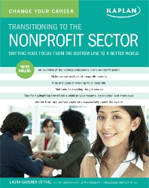Speaking with Balsamiq CEO Giacomo ‘Peldi’ Guilizzoni about Start-ups and being an Entrepreneur
Welcome to CareeMee’s Blog! CareerMee is an online recruitment platform for MBAs from top business schools – a reverese job board that helps you find your perfect job. Check out our site here for more information and to sign up!
Now, down to business.
This week, our start-up profile focuses on Italian-based Balsamiq, a new, inventive start-up that specializes in high-quality plugins for Web Office applications. We caught up with Giacomo ‘Peldi’ Guilizzoni, the company founder and CEO to get some insight into what his company does, and how bright or bleak the horizon is for start-up IT companies at the moment….
______________________________________________________________________
CareerMee: Thanks for talking with us today! Giacomo, can you pitch your company in 100 words or less?
Giacomo: First of all I’d like to thank you for the opportunity to be featured on your site. I have to admit I feel a bit sheepish not having gone to business school myself, but I swear I seriously considered it a few years ago.
About Balsamiq: we launched on June 19th 2008. We are a small software company focused on building high quality plugins for Web Office applications. Our first product is Balsamiq Mockups, a sketch-quality wireframing tool. Mockups has been extremely well received, netting over $750,000 in sales in its first year and gathering rave reviews. We like to compete on usability and customer service. http://www.balsamiq.com
CareerMee: That sounds great! What stage of development are you at the moment?
Giacomo: We are in the “continuous improvement based on user feedback” stage. Mockups has been on sale for over a year, and there’s still lots to do and more fun to be had! 🙂
We have over 7,000 customers at the moment and are selling about $120,000 worth of new licenses every month. We try to release a new update every week, based largely on customer feedback. We also aim to release two new product versions a year, expanding our sales channels to other Web Office platforms (wikis, CMSs, bug trackers)
CareerMee: With that kind of success, it sounds like you need good people around you. Would you like to tell us a bit about yourself/your team?
Giacomo: Sure, I love our team! Valerie Liberty is our COO, Wow! Division, and works out of her home in the heart of the Silicon Valley. She keeps the company running smoothly and takes care of a lot of our customer’s questions. She’s one of those people one cannot help to instantly fall in love with, so she’s definitely perfect for the job. My wife Mariah also does some customer support but mostly focuses on our philanthropic efforts: we donate A LOT of licenses to do-gooders, non-profits and the like. It’s something we really love doing. Email us at free@balsamiq.com if you want to know more.
Doing most of the programming these days is Marco Botton, who works with Mariah and me out of our home office in Bologna, Italy. Marco is a senior programmer, a generalist, optimist and is not afraid of any technical challenge. He’s just what you need in a small tech startup.
Lastly, I go by Peldi but my full name is Giacomo Guilizzoni. Formerly a software engineer at Macromedia/Adobe, I ran Balsamiq pretty much alone for the first 8 months in business (up to 3,000 customers). While I still have my hands in every aspect of the business, I am slowly realising that the job of a CEO is a pretty time-consuming one!
CareerMee: What is the next year set to bring for/from Balsamiq?
Giacomo: I am very happy with the pace we’re going at right now. We are doing good work, are happy doing it and are making lots of customers happy by saving them time and helping them communicate their ideas better. So the plan is to continue to do much of the same.
There’s still quite a ways to go before my vision for Mockups will be completely implemented, and that vision keeps evolving based on customer feedback and external market forces.
We are about to launch a SaaS (hosted, subscription-based) version of Mockups. This channel is new to us, so there will be lots to learn there as well. I’m looking forward to it!
CareerMee: What impacts has the recession had on startups/the startup scene?
Giacomo: What recession? 🙂 Well, we were born during the recession, so we don’t know anything else. I wonder if the recession has actually helped us, as companies strapped for resources look around for low-cost, high ROI tools like ours.
CareerMee: Sounds great. So, any advice you’d like to offer someone who’s thinking of launching an online startup?
Giacomo: As a rookie entrepreneur, I don’t feel I’m in a position to give anyone advice yet. So I guess my advice would be to find some heroes and try to soak in as much advice as possible from them: read their books, subscribe to their blogs, follow them on Twitter…I know, not the most original advice but it’s the one with the highest ROI I can think of.
Thanks for talkiing with us, Giacomo! Readers, if you have any experience starting your own company, or have any questions, be sure to go to our comments section. And don’t forget to go to CareerMee.com, our exclusive MBA platform for top MBAs!
Filed under: How To Start an Online Company, Startup Profile | Tagged: competitors, entrepreneurship, market research, MBA, MBA resources, online company, start-up | 5 Comments »











Update: Exclusive MBA Job in Nonprofit Sector
Hey guys! We’re back – with a job for MBAs in the nonprofit sector!
Laura Gassner Otting (see our interview from today’s earlier post), Founder and President of Nonprofit Professionals Adviory Group, has a job opening for senior level MBAs. Check it out, and head over to CareerMee.com so your profile is available for recruiters like Laura to see!
so your profile is available for recruiters like Laura to see!
Organization: Special Olympics International
Position Title: Cheif Finacial Officer (CFO)
Position Location: Washington, D.C
Brief Position Overview: Reporting to the President & COO, the next Chief Financial Offer will join Special Olympics International during an exciting and challenging time as the Special Olympics Movement expands its programmatic and geographic impact, necessitating a renewed focus on internal financial strategy and a business-savvy financial team. The Chief Financial Officer leads both the strategy and the day-to-day operations of SOI’s finance and accounting function including the development and maintenance of SOI’s $67M operating budget.
S/he will be expected to: devise, implement, and administer SOI’s overall financial plans, programs and policies; oversee fiscal compliance with all regulatory and/or governing bodies; and manage a staff of 11 professionals. In addition, the Chief Financial Officer serves as a business partner to the Audit and Finance Committee of the Board of Directors at Special Olympics International, provides support to the needs of the Movement’s Board of Directors as well as other leaders and executive management, and leads and stewards a global base of accounting relationships, entities and regulations, across seven Regional Management Teams.
For more information and to apply, click here.
Thanks for checking back, and be sure to head over to CareerMee.com to set up your profile, so recruiters like Laura can contact you with more positions like this when they become available.
Filed under: Interview with a Headhunter, MBA News & Commentary | Tagged: headhunter, jobs, MBA, nonprofit, recruiter, special olympics | Leave a comment »